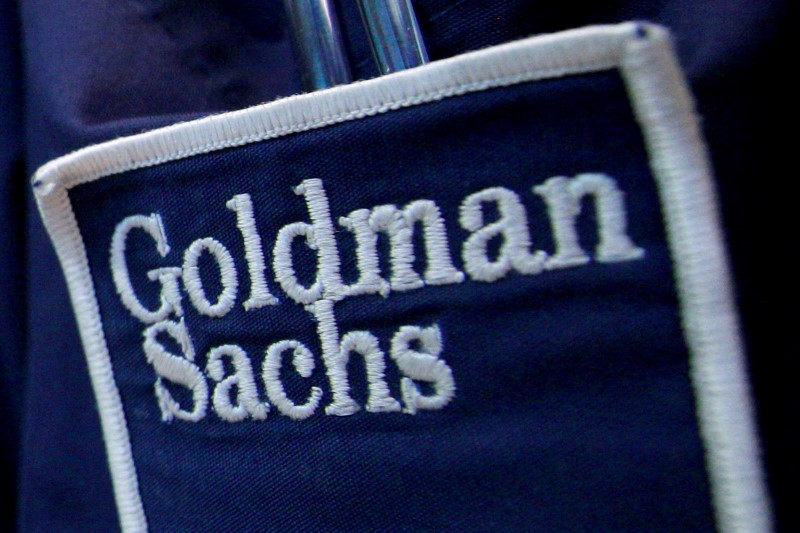(Bloomberg) -- Goldman Sachs Group Inc (NYSE:GS). predicted the worst may be over at least for the high-grade portion of credit markets even as debt prices continue to zigzag.
Thursday was a down day for credit in Asia. Yield premiums on Asian dollar bonds and the cost of insuring debt against default in the region both increased, as more dour news on the coronavirus pandemic limited risk-taking. Read more about that here.
Still, for investment-grade credit, the peak of the rout was probably in March, as unprecedented steps by the Federal Reserve to pump liquidity into the financial system have been helping since then, Lotfi Karoui, strategist at Goldman Sachs, wrote in a report. Spreads on such debt though will likely remain in recession territory for another two quarters, and the outlook for the high-yield market looks grim, he said.
“The potency of the policy support greatly limits the scope for spreads to revisit the March wides,” Karoui wrote. “By contrast, the numerous fundamental headwinds facing the HY market will likely push spreads wider from current levels.”
Emerging-market debt is also being targeted by sellers, traders say. Those economies are suffering disproportionately from the collapse of commodity prices, supply chains, trade and spending, and monetary and fiscal stimulus measures could worsen the massive exodus by foreign investors.
Asia
- Spreads on top-rated Asian dollar bonds were around 10 basis points wider Thursday, according to traders, after rising 3 basis points Wednesday. They are headed for a seventh straight week of increases, the longest such streak in more than a year, according to a Bloomberg Barclays (LON:BARC) index
- The Markit iTraxx Asia ex-Japan index of credit-default swaps rose about 5-8 basis points on Thursday, according traders. The gauge widened 13 on Wednesday, according to CMA data
- Chinese investment-grade dollar bonds may continue to outperform other emerging-market peers, says Todd Schubert, head of fixed-income research at Bank of Singapore Ltd. Better-rated Chinese notes are often government related and seem to be considered a safe haven in emerging economies, he says
- South Korea’s 20 trillion won ($16 billion) bond stabilization fund started buying corporate notes and commercial paper from today, the Financial Services Commission said. The regulator believes the fund will act as a safety net for the market
- A sale of asset-backed securities by Korean Air Lines Co. showed carriers pummeled by the coronavirus outbreak can still issue debt, though at a steep cost. Here’s a chart showing the tumble in the airline’s dollar notes:
U.S.
- Credit markets weakened with stocks on Wednesday as President Donald Trump told the U.S. to brace for one of its toughest stretches as a nation, with the death toll from the virus projected to potentially top 200,000
- The high-grade borrowing bonanza showed no signs of abating with 11 companies launching $28.5 billion in new debt, meaning 36 issuers have already priced $78.8 billion this week
- Carnival (NYSE:CCL) wrapped up its $4 billion bond sale after boosting the dollar component, dropping the euro tranche and getting a two-notch downgrade from Moody’s Investors Service on Tuesday
Europe
- Seventeen deals priced Wednesday in the primary market’s busiest day for more than two months, totaling 26.8 billion euros ($29.3 billion)
- It follows the best-ever quarter for debt sales, with more than 510 billion euros priced, mainly reflecting huge volumes at the start of the year, and lots of reverse Yankee issuance
- Borrowers including LVMH Moet Hennessy Louis Vuitton SE and Absolut Vodka maker Pernod Ricard (PA:PERP) SA are leading a calendar set to price 26.57 billion euros
©2020 Bloomberg L.P.
